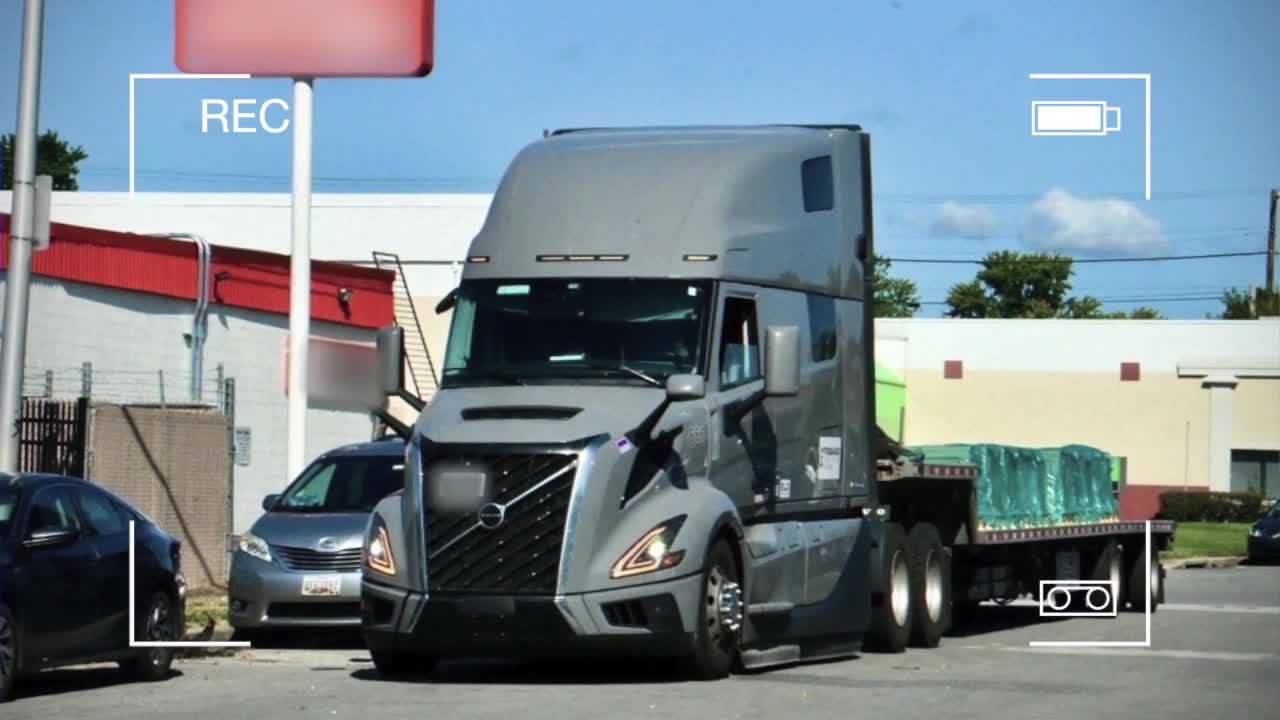BALTIMORE — A California business owner thought she had landed the biggest sale of her career. Instead, she was conned into sending nearly $200,000 worth of flooring materials to Baltimore in an elaborate cargo theft scheme that's becoming increasingly common nationwide.
Claudia Visona, sales manager at Galleria Tile in San Francisco, fell victim to scammers who impersonated employees of AECOM, a major construction firm. The three-generation family business now faces potential bankruptcy after losing $175,000 worth of tile and luxury vinyl plank flooring.
"I've had sizable orders before, but this one was like right there at the edge," Visona said.
The scam started in August, when a man posing as an AECOM employee placed a rush flooring order. When Visona asked for a 50 percent deposit, he pushed back, saying their reputation and the chance for future work warranted net-30 terms.
"They have 30 days to pay for the material once they are sent the invoice," Visona explained.
The buyer, who identified himself as Johnny Kwok, sent official-looking paperwork and a credit application. Trusting the documentation, Visona shipped the first order — 25,000 square feet of tile — to a storage facility in northeast Baltimore.
When Visona followed up about payment, the buyer requested additional materials.
"I reached out to him and I said, hey, what's going on? Like, when do you expect to send this money? And he said, oh well, actually we want to get more material," Visona said.
Kwok placed a second order for 41,000 square feet of luxury vinyl plank, assuring Visona both shipments would be paid for by September 26. Hoping to protect her business, Visona hired a private investigator who checked the Baltimore delivery site and spoke with truck drivers claiming to be delivering for AECOM. The investigator also visited AECOM’s Baltimore offices but couldn’t speak with anyone who could verify the order.
Visona proceeded with the second shipment — sending more than $175,000 worth of flooring materials to Kwok in total.
"I was nervous and I was excited because I'm like, oh my God, if this is real, I can finally get like my lights redone, I can redo my showroom, I can really make this into my own business now and take it another 30 years, or I'm going to have to close down," Visona said.
The buyer eventually stopped responding to calls and emails. The private investigator then received confirmation from AECOM's security office that no employees by that name worked for the company. The scammers had used a fake domain — aecom-usa — and created a fraudulent website to impersonate the legitimate construction firm.
WMAR-2 News Mallory Sofastaii contacted AECOM multiple times but did not receive a response. Calls to the phone number for Johnny Kwok and the driver listed on delivery instructions resulted in immediate hang-ups.
Visona filed police reports with San Francisco Police Department and other agencies, but recovery efforts have yielded little progress.
READ MORE: Digital highway robbery: Cargo theft expected to hit record highs in 2025
Keith Lewis, vice president of operations at Verisk CargoNet, which tracks cargo thefts nationwide, said recovery rates are low.
"You may have 100 loads stolen a week, but you may recover 3 or 4," Lewis said.
In the Baltimore area, Verisk CargoNet is tracking rising theft activity. The average loss has climbed from $119,918 to $312,356, due to targeting expensive metal shipments.
And according to CargoNet, the problem extends well beyond Maryland. The company recorded 884 supply chain theft incidents across the United States and Canada in the second quarter of 2025 — a 13 percent increase over the same period in 2024 and a 10 percent jump from the first quarter of this year.
The estimated total loss value exceeded $128 million, based on average loss figures for cases where the dollar amount wasn’t reported.
Lewis said scammers create convincing documentation, from emails to invoices, making their schemes appear legitimate. His advice for businesses is to verify orders through direct contact using confirmed company phone numbers, not contact information provided by potential buyers.
"Net 30 seems to be the standard, but pick up the phone, call the CFO of the company. Call the CFO with the references. Ask for other people in the company," Lewis said.
For Visona, the financial loss represents more than money — it threatens her family's three-generation legacy.
"My mom and my grandma's legacy is destroyed too. And that's something I was so proud to be part of. And so, it's just really, it's really frustrating," Visona said.
According to Verisk CargoNet, theft by deception now accounts for roughly one-third of all cargo theft reports nationwide. The company advises businesses to request Dun & Bradstreet credit reports when vetting large or high-value orders.
CargoNet data shows a consistent breakdown in recent years: traditional theft makes up about 57%, theft by deception about 33%, and other incidents roughly 10% — a trend that has continued into 2025.
- Traditional cargo theft involves physically stealing goods — either by breaking into a loaded trailer or taking the truck or trailer itself from a yard or rest stop.
- Theft by deception happens through fraudulent means, such as impersonating a legitimate company or purchasing an existing motor carrier authority to steal cargo.
- Other incidents include intelligence reports or disruptions to supply chains that may not meet the threshold of a criminal theft.
Meanwhile, federal lawmakers have introduced the Combating Organized Retail Crime Act (CORCA), a bill that would increase penalties for cargo theft and establish a national coordination center to help law enforcement agencies share information and investigate these crimes more effectively.
Individuals who are a victim of cargo theft can contact: cargotheft@cargonet.com. They should also call local law enforcement, your insurance carrier, and the National Insurance Crime Bureau's hotline at 800-TEL-NICB.
This story was reported on-air by a journalist and has been converted to this platform with the assistance of AI. Our editorial team verifies all reporting on all platforms for fairness and accuracy.




